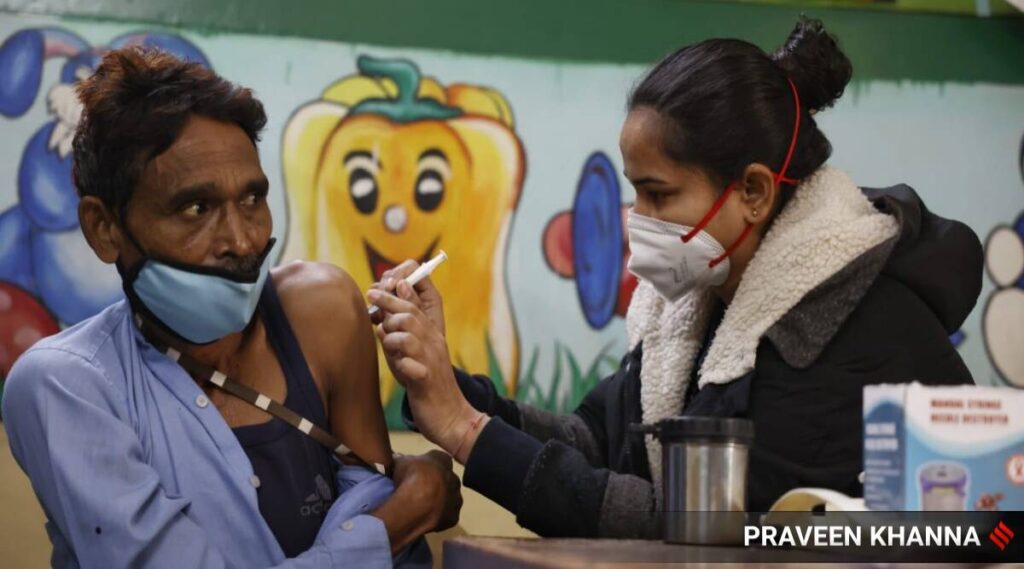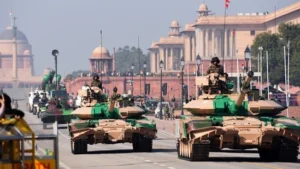Coronavirus Omicron India Live Updates: India reports over 3.17 lakh new Covid cases, 491 deaths

Coronavirus Omicron India LIVE News: India reported more than 3.17 lakh (3,17,532) new Covid-19 cases in the last 24 hours ending at 9 am on Thursday, marking a 12 per cent increase in fresh cases since Wednesday. The country’s active caseload currently stands at 19,24,051, while the recovery rate stands at 93.69 per cent.
The total tally of Omicron cases rose to 9,287 on Thursday, 3.63 per cent higher than yesterday. As many as 491 Covid patients succumbed to the deadly infection in a day. As the recent Omicron-fuelled third wave in Maharashtra has started to show signs of plateauing, the state government has decided to start reopening schools for students of classes 1-12 from Monday onwards.
Here are some major Covid updates: The Covid test positivity rate has surged to 37 per cent in Kerala, as the Omicron-fuelled third wave continues to surge across the coastal state. “Next three weeks would be critical for Kerala,” said state health minister Veena George. Meanwhile, Data show a sharp gender gap in vaccination, particularly in the country’s top metros. India has clocked over 158 crore vaccines – first, second and precaution doses taken together — until January 18, at a ratio of 954 women for every 1,000 men. In other news, a new study shows that an infection with the Omicron variant of the Covid virus may not generate broad immunity in unvaccinated individuals that can protect against other variants.
In Covid year, a third of Gujarat Board’s Class 10 students got grace marks to pass
Over a third of the 8.5 lakh Class 10 students of the Gujarat Secondary and Higher Secondary Education Board (GSHSEB) who were promoted to Class 11 in the 2020-2021 academic year had to be given grace marks for them to get past the threshold of 33 per cent that’s required to pass.
Of the 2.66 lakh students who got grace marks, around 170 of them got up to 200 extra marks — 231 is the minimum pass marks — and nearly 9,400 students got over 100 grace marks, data accessed by The Indian Express show.
In a pandemic year, when learning took a hit and the CBSE and most state Boards, including GSHSEB, cancelled the Class 10 and 12 term-end exams, the findings, showing how mass promotions were facilitated, are significant since they are likely to be mirrored across the country.
Explained: The global toll of bacterial resistance to drugs
Hundreds of thousands of deaths occur today due to previously treatable infections — such as lower respiratory and bloodstream infections — because the bacteria that cause them have become resistant to treatment. A comprehensive estimate of the global impact of antimicrobial resistance (AMR), covering 204 countries and territories and published in The Lancet, has found that 1.27 million people died in 2019 as a direct result of AMR, which is now a leading cause of death worldwide, higher than HIV/AIDS or malaria.
The analysis
The Global Research on Antimicrobial Resistance (GRAM) report used statistical modelling to estimate deaths linked to 23 pathogens and 88 pathogen-drug combinations. Apart from 12.7 lakh deaths caused directly by AMR (these would not have occurred had the infections been drug-susceptible), another 49.5 lakh deaths were associated with AMR (a drug-resistant infection was implicated, but resistance itself may or may not have been the direct cause of death). HIV/AIDS and malaria were estimated to have caused 8.6 lakh and 6.4 lakh deaths respectively in 2019.
With Thanks Refrence to: https://indianexpress.com/article/india/coronavirus-live-updates-omicron-guidelines-vaccinations-7732748/







